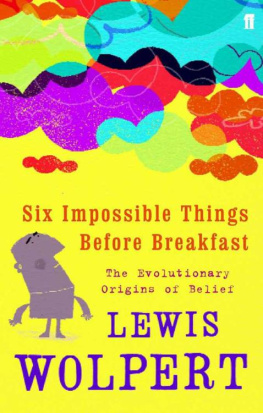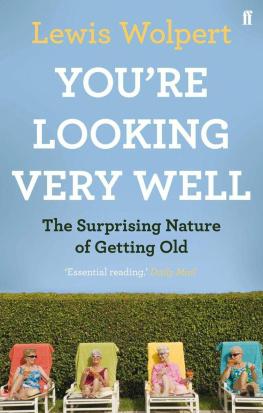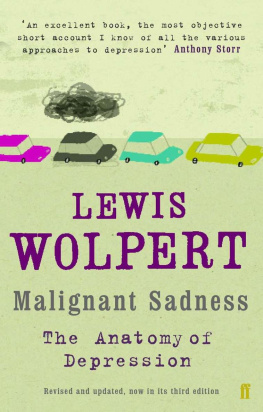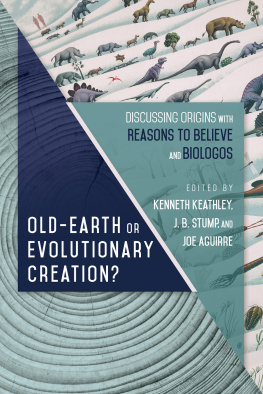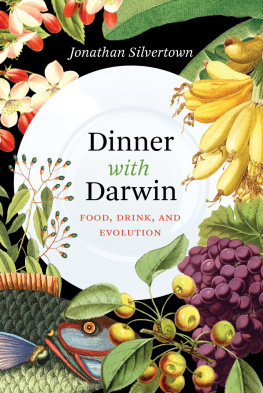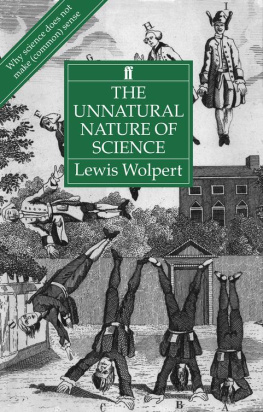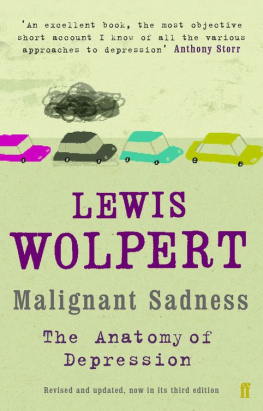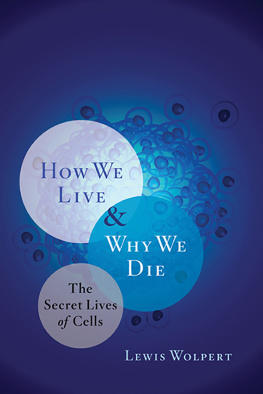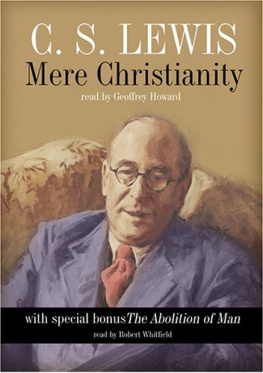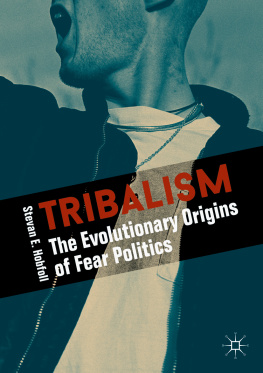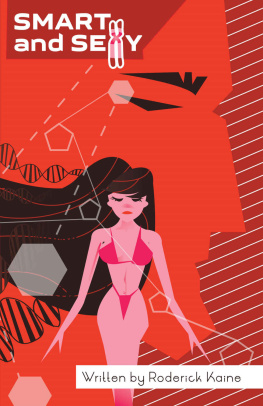Lewis Wolpert - Six Impossible Things Before Breakfast: The Evolutionary Origins of Belief
Here you can read online Lewis Wolpert - Six Impossible Things Before Breakfast: The Evolutionary Origins of Belief full text of the book (entire story) in english for free. Download pdf and epub, get meaning, cover and reviews about this ebook. year: 2010, publisher: faber and faber, genre: Religion. Description of the work, (preface) as well as reviews are available. Best literature library LitArk.com created for fans of good reading and offers a wide selection of genres:
Romance novel
Science fiction
Adventure
Detective
Science
History
Home and family
Prose
Art
Politics
Computer
Non-fiction
Religion
Business
Children
Humor
Choose a favorite category and find really read worthwhile books. Enjoy immersion in the world of imagination, feel the emotions of the characters or learn something new for yourself, make an fascinating discovery.
- Book:Six Impossible Things Before Breakfast: The Evolutionary Origins of Belief
- Author:
- Publisher:faber and faber
- Genre:
- Year:2010
- Rating:3 / 5
- Favourites:Add to favourites
- Your mark:
- 60
- 1
- 2
- 3
- 4
- 5
Six Impossible Things Before Breakfast: The Evolutionary Origins of Belief: summary, description and annotation
We offer to read an annotation, description, summary or preface (depends on what the author of the book "Six Impossible Things Before Breakfast: The Evolutionary Origins of Belief" wrote himself). If you haven't found the necessary information about the book — write in the comments, we will try to find it.
Six Impossible Things Before Breakfast: The Evolutionary Origins of Belief — read online for free the complete book (whole text) full work
Below is the text of the book, divided by pages. System saving the place of the last page read, allows you to conveniently read the book "Six Impossible Things Before Breakfast: The Evolutionary Origins of Belief" online for free, without having to search again every time where you left off. Put a bookmark, and you can go to the page where you finished reading at any time.
Font size:
Interval:
Bookmark:
LEWIS WOLPERT
Before Breakfast
The Evolutionary Origins of Belief

Grateful thanks to a number of people. Jack Herberg and Judith Landry commented on an early draft and Kim Sterelny, Philosophy Department, Victoria University of Wellington, New Zealand, made most helpful suggestions. Maureen Maloney typed the book thanks again. And Alison Hawkes corrected and commented on draft after draft invaluable help. Thanks too, to my agent Anne Engel and my editor Julian Loose needs many thanks, not least for the title.
I became interested in belief for several reasons. In the first instance I wanted to know why my non-science friends had such difficulty with understanding science and why there was a quite strong anti-science movement. It was a real puzzle for me as I believe science to be the best way to understand how the world works. This led me to examine the unique origins of science among the Greeks, and its unnatural nature. Related to the general absence of belief in the scientific method was the belief in what I regard as the unbelievable, from angels to aliens to levitation and telepathy. How could people believe in things for which there seemed to be no reliable evidence? It really irritated me. And then there was religion, which affected me personally.
I was quite a religious child, saying my prayers each night and asking God for help on various occasions. It did not seem to help and I gave it all up around sixteen and have been an atheist ever since. Then my youngest son, who had been through a difficult late adolescence, was evangelised and joined the London Church of Christ. This is a fundamentalist Christian church, which takes the Bible literally. Contrary to what friends thought, I was not upset, as the church really helped Matthew. But the following incident reflects our relationship. Sitting in my office, Matthew said he was so envious of me, as I was so fortunate. Unused to receiving such a positive remark from any of my children, I beamed, and asked what he so envied. The reply was You are going to die soon, certainly before me. I was shocked. Why was this so desirable? It was because he wanted to die so that he could go, he strongly believed, to heaven. In discussion, his position was totally rational and he could not, according to the religious rules, take his own life. I had to accept his position, albeit reluctantly. I did relate the incident to his sister Jessica. A week later I found a note on my chair Jessica says you think you are going to heaven when you die. We need to talk!
My aim in this book is to try and understand what determines what people believe about causal events, and so it is on causal rather than ethical and moral beliefs that I will focus. A key issue is to determine what distinguishes our thinking and beliefs from other animals and how this might have evolved. There will thus be a quite strong biological emphasis on how our brains function, together with an evolutionary viewpoint.
My aim is not to disparage the beliefs of others, even though I do not share them. This aim may not always be successful as I am neither religious nor do I have any beliefs in a spiritual world or paranormal happenings. My thinking is based on a belief in the scientific process, and the necessity for evidence. It is thus essential that from the very beginning I set out my own beliefs, even though I will try not to alter my material to fit in with them, or to try and persuade the reader to share them with me. I admit I am a reductionist materialist atheist.
I am committed to science and believe it to be the best way to understand the world. I look at religion as a scientist. I know of no good evidence for the existence of God. I am in no way hostile to religion provided it does not interfere in the lives of other people or come into conflict with science. I do not believe in paranormal phenomena such as communication with the dead, telepathy, mind reading, ghosts, spirits, psi, psychokinesis, levitation the evidence is just not there. I am thus similarly very suspicious about claims for the success of alternative medicine from reflexology to homeopathy and spiritual healing, and particularly psychoanalysis. While I am not concerned here to criticise or question beliefs in these topics, inevitably my views will come through.
A tool that I try to use is evolutionary biology, as this is a topic I am familiar with, though mainly in relation to the development of embryos. It is mainly evolutionary psychology that is relevant here, and I am aware that this is quite a controversial field. There are those who do not wish to believe just how much our genes determine our behaviour. They should perhaps reflect on lower animals, such as flies, who can land safely on the edge of a glass without practice, and birds who build wonderful nests. It is our genes that make the embryos from which we develop and end up as humans, and they determine how our brains will work. Yes, culture is important, as is nurture, but they both interact in and on a very complex biological system.
The key evolutionary idea related to our minds is that of adaptiveness; that is those behaviours, thoughts and beliefs that help us humans to survive better. Genes can determine variants in such processes and evolution will select those individuals that survive best, and will so select those genes. The problem is to identify just what those characteristics are and how genes affect them, and to distinguish them from those that arise from interaction with the environment and learning. Alas, much of the evolutionary biology that I will use is similar to Kiplings Just So stories, like how the camel got its hump. It is very difficult to get reliable evidence to show whether one is right or wrong. One cannot go back in time, but I hope that this book, like Kiplings, is both interesting and entertaining.
I have only a limited illusion that I have provided useful insights into the nature of belief, but hope to have raised some important, if controversial, issues. I would be surprised, and disappointed, if some of the ideas did not provoke quite a few vigorous rejections, and alternative explanations.
And as for the title, it comes from Lewis Carrolls Through the Looking Glass, when Alice encounters the White Queen and they talk about belief. When Alice says she cannot believe in impossible things, the Queen replies: I dare say you havent had much practice. When I was your age, I always did it for half-an-hour a day. Why, sometimes Ive believed as many as six impossible things before breakfast.
BEFORE BREAKFAST
CHAPTER ONE
Believing passionately in the palpably not true is the chief occupation of mankind.
H. L. Mencken
Our lives are full of causal beliefs about events that do not fit with our expectations why the children are late from school, why the car will not start, why the weather is so bad, and why we have got ill. We humans have a basic need to have beliefs that account for important events in our lives, and these can be quite sensible and rational. We all have beliefs about how the day-today world works, and it is some of these common and quite simple beliefs, like those related to risks of various kinds, that I want to explore first, particularly the strange causes that we believe in, and why these beliefs are so persistent. The focus here is largely on Western culture. I am not concerned at this stage with more complex beliefs like those relating to religion, the paranormal or health, which will be considered later, but many similar principles are involved, and the boundaries may be rather fuzzy.
Font size:
Interval:
Bookmark:
Similar books «Six Impossible Things Before Breakfast: The Evolutionary Origins of Belief»
Look at similar books to Six Impossible Things Before Breakfast: The Evolutionary Origins of Belief. We have selected literature similar in name and meaning in the hope of providing readers with more options to find new, interesting, not yet read works.
Discussion, reviews of the book Six Impossible Things Before Breakfast: The Evolutionary Origins of Belief and just readers' own opinions. Leave your comments, write what you think about the work, its meaning or the main characters. Specify what exactly you liked and what you didn't like, and why you think so.

